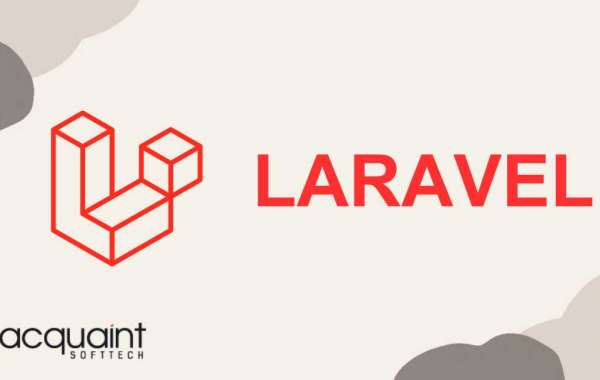Introduction
In a world where technology is transforming the way we connect, virtual events have taken center stage. With advancements in technology and the changing global landscape, the concept of attending conferences and expos from the comfort of our screens has become a new norm. This blog unveils the significance of virtual event platforms as hosts for these online gatherings. Specifically, we'll explore how platforms built on Laravel, a powerful web development framework, are making these virtual experiences seamless and engaging for all. Let's dive into the world of Laravel-based virtual event platforms and discover their remarkable benefits.
Understanding Virtual Event Platforms
Virtual event platforms are online spaces where people can gather, interact, and engage in various activities, just like they would at in-person events. These platforms use digital tools and technologies to replicate the experience of physical events in a virtual setting. Here's a simple breakdown:
- What Are They?: Virtual event platforms are like websites or apps where participants log in to access event content, presentations, discussions, and networking opportunities.
- How They Work: Imagine logging into a website and finding a virtual lobby where you can choose different areas to explore – like a conference hall for talks, an expo zone for exhibitors, and lounges for networking. These platforms often include chat features, live streaming, and interactive elements.
- Types of Events: Virtual event platforms can host a variety of events, such as conferences (for learning and sharing insights), expos (for showcasing products and services), trade shows (for industry networking), and more.
- Advantages: Virtual events offer several benefits over traditional in-person events, such as:
- Global Reach: People from anywhere can participate without travel constraints.
- Cost Savings: No travel expenses, venue rentals, or accommodation costs.
- Flexibility: Attendees can access content on their own schedule.
- Data Insights: Digital interactions provide data for analyzing participant engagement.
In essence, virtual event platforms make it possible to attend and host events from the comfort of your own space while enjoying many of the same experiences as physical events.
Role of Laravel in Virtual Event Platforms
Laravel, a widely-used PHP framework, plays a crucial role in crafting virtual event platforms that deliver exceptional experiences. Here's why it's a top choice for building such platforms:
- User-Friendly Foundation: Laravel's intuitive syntax and structure make it easier for developers to create user-friendly interfaces that attendees and organizers can navigate effortlessly.
- Robust Security: Security is paramount in virtual events. Laravel incorporates robust security features that safeguard sensitive data, protecting both event participants and organizers.
- Scalability: As events grow in size and complexity, Laravel's scalability ensures that the platform can handle increased traffic and interactions without performance hiccups.
- Efficient Development: Laravel's modular nature and built-in tools streamline the development process, allowing Laravel development companies like "Acquaint Softtech" to efficiently build feature-rich platforms.
- Real-Time Interaction: Laravel's integration with technologies like WebSockets facilitates real-time interactions, enabling seamless networking and engagement among attendees.
- Payment Integration: With virtual events often involving ticketing and transactions, Laravel's support for various payment gateways ensures smooth monetary transactions.
In a world where virtual events are becoming the norm, Laravel's versatility and capabilities make it an ideal choice for crafting innovative and successful platforms. If you're looking to create a virtual event platform, consider leveraging the expertise of "Acquaint Softtech," a leading Laravel development company. Hire Laravel developers to bring your vision to life and offer memorable online event experiences.
Key Features of Laravel-Based Virtual Event Platforms
Virtual event platforms powered by Laravel offer a range of essential features that make hosting conferences and expos online smooth and engaging. Let's explore these features in detail:
- User Authentication and Registration: Laravel's authentication system adds layers of security for both event participants and organizers. Attendees can securely register, log in, and access the event content while organizers have control over user roles and permissions.
- Event Creation and Management: With Laravel's MVC architecture, creating and managing events becomes hassle-free. Organizers can easily set up event details, schedules, speakers, and sessions. The separation of concerns in MVC keeps the code organized and maintainable.
- Real-time Communication: Laravel's integration with tools like WebSockets empowers real-time interactions among attendees. This enables live chat, QA sessions, and instant updates during presentations, fostering dynamic engagement.
- Payment Integration: Laravel supports various payment gateways, streamlining the ticketing and monetization process. Attendees can securely purchase event tickets or access passes through trusted payment methods.
- Content Sharing: Laravel facilitates effortless sharing of multimedia content, presentations, and documents. Attendees can access event materials easily, enhancing their learning and participation experience.
- Networking and Engagement: Laravel-based platforms include features that encourage networking and engagement among attendees. Chat systems allow participants to connect, discuss sessions, and share insights. Discussion forums provide a platform for in-depth conversations beyond sessions.
Real-World Success: Acquaint Softtech - A Laravel Development Company
- Acquaint Softtech: A leading Laravel development company, Acquaint Softtech, has demonstrated expertise in building robust virtual event platforms. They leverage Laravel's features to create seamless, interactive, and secure online conference and expo experiences.
- Laravel Development Expertise: Acquaint Softtech's team of skilled Laravel developers has a deep understanding of Laravel's capabilities. They craft virtual event platforms tailored to specific client needs, ensuring a user-friendly and efficient event environment.
- Hire Laravel Developers: Organizations looking to enhance their virtual event capabilities can consider hiring Laravel developers from Acquaint Softtech. These developers bring a wealth of experience in Laravel-based application development, ensuring high-quality and feature-rich platforms.
In summary, Laravel-based virtual event platforms offer a comprehensive suite of features that enrich the online event experience for both attendees and organizers. With features like secure user authentication, easy event management, real-time communication, seamless payment integration, content sharing, and networking tools, these platforms are reshaping the landscape of virtual conferences and expos.
Challenges and Considerations
Developing virtual event platforms using Laravel offers great benefits, but there are a few challenges to be mindful of. Here's what you need to know:
- Scalability Challenges: As events grow in participants, the platform must handle increased traffic. Scalability becomes crucial to prevent crashes or slowdowns.
- Solution: Collaborate with experts from companies like Acquaint Softtech, a Laravel development company, to optimize scalability. Employ Laravel's features to efficiently manage database queries and caching.
- Security Concerns: Protecting user data, payment information, and sensitive discussions is paramount.
- Solution: Hire Laravel developers with experience in security. Utilize Laravel's built-in security features, implement encryption, and regularly update the framework.
- Performance Optimization: Slow load times can frustrate users and impact engagement.
- Solution: Optimize database queries, use caching mechanisms, and leverage content delivery networks (CDNs) for faster content delivery.
By partnering with experienced teams like Acquaint Softtech and utilizing the capabilities of Laravel, you can navigate these challenges effectively. Remember, hiring Laravel developers familiar with security and optimization can make a significant difference in your virtual event platform's success.
Steps to Build a Laravel-Based Virtual Event Platform
Building a virtual event platform using Laravel might sound complex, but let's break it down into simple steps:
Planning the Platform
- Define the purpose and goals of your virtual event platform.
- Outline the features you want to include, such as registration, live streaming, chat, and networking.
Setting Up Laravel
- Install Laravel using Composer, a tool for managing PHP dependencies.
- Set up your development environment, including PHP and a database (like MySQL).
Creating the Database
- Design the database schema to store event details, user information, sessions, and more.
- Use Laravel's migration feature to create and manage database tables.
User Authentication
- Implement user registration and login using Laravel's built-in authentication system.
- Ensure secure user data handling and password protection.
Event Management
- Build a user-friendly interface for creating, editing, and managing events.
- Utilize Laravel's MVC structure to organize your code and separate concerns.
Real-time Interaction
- Integrate WebSockets (using Laravel Echo and Pusher) for real-time chat and updates.
- Allow attendees to interact with speakers and fellow participants during sessions.
Content Sharing
- Enable speakers to upload presentations, videos, and other multimedia content.
- Use Laravel's file storage system for efficient content management.
Payment Integration
- Integrate payment gateways like Stripe or PayPal for ticket sales and monetization.
- Ensure secure transactions and provide a seamless payment experience.
Networking Features
- Implement a chat system or discussion forums for attendees to connect and engage.
- Foster meaningful interactions to enhance the virtual event experience.
Testing and Optimization
- Thoroughly test the platform to identify and fix any bugs or issues.
- Optimize the performance of your Laravel application for smooth user experiences.
Deployment
- Choose a hosting service (like Heroku or AWS) to deploy your Laravel application.
- Configure the server environment and set up any necessary domain settings.
User Training and Support
- Provide clear instructions and guides for users to navigate and use the platform.
- Offer responsive customer support to address any user queries or concerns.
Resources and Tools:
- Laravel Documentation: Official guides and tutorials for Laravel development.
- Composer: Tool for managing PHP packages and dependencies.
- Laravel Echo and Pusher: Libraries for implementing real-time features.
- Laravel Mix: Simplifies asset compilation and management.
- Payment Gateway APIs: Stripe, PayPal, or other APIs for handling payments.
Future Trends in Virtual Event Platforms
Virtual event technology is evolving rapidly, and here are some exciting trends to watch for:
- Hybrid Events: Combining virtual and in-person elements to cater to wider audiences.
- AI and Personalization: AI-driven recommendations for sessions, networking, and content.
- Enhanced Networking: Advanced tools for meaningful virtual networking experiences.
- Immersive Technologies: Integration of VR and AR for interactive event experiences.
- Accessibility Focus: Ensuring inclusivity with features for differently-abled attendees.
- Data Analytics: Deeper insights into attendee behavior and preferences.
- Laravel's Evolution: Expect Laravel to adapt to these trends, offering relevant tools and updates.
By keeping an eye on these trends and leveraging Laravel's flexibility, you can stay ahead in the virtual event space."
Remember, building a Laravel-based virtual event platform may require technical expertise, but breaking it into steps and utilizing available resources can make the process more manageable for developers at various skill levels.
Conclusion
In a world where virtual interactions have become a norm, hosting successful conferences and expos online is essential. This blog has unveiled the power of Laravel-based virtual event platforms, showing how they're a game-changer. From seamless event creation to real-time engagement, Laravel's features provide a solid foundation. By choosing Laravel, you're not just building an event platform – you're creating immersive experiences. So, don't hesitate! Embrace Laravel and unlock the door to innovative, impactful virtual events. Start your journey today and craft unforgettable online gatherings with ease.









